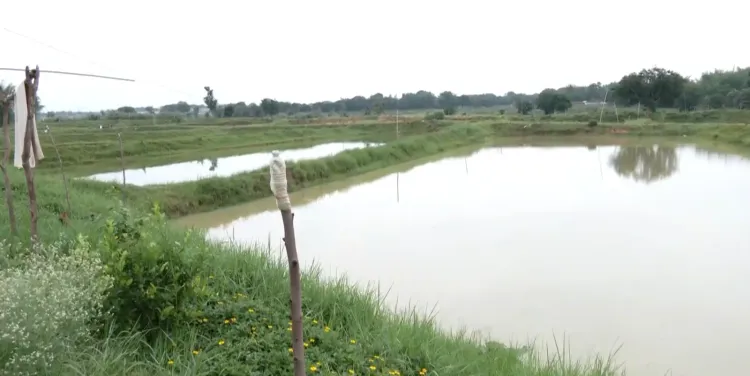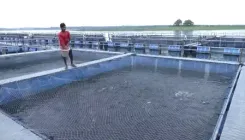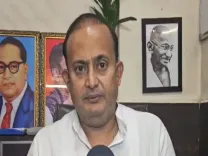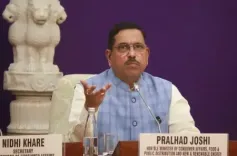How Are Jharkhand’s Former Maoists Becoming Fish Farmers?

Synopsis
Key Takeaways
- Transformation: Fish farming is transforming lives in Jharkhand.
- Empowerment: Former Maoists are finding new opportunities.
- Community Impact: Over 150 people have embraced fish farming.
- Social Change: The initiative is reducing illicit activities.
- Nutrition: Fish is a vital protein source for locals.
In the remote regions of Jharkhand, where once Maoist violence reigned, a remarkable transformation is taking place—one fueled not by ideology, but by opportunity. Former Maoists and local villagers are now venturing into fish farming, thanks to the government's Pradhan Mantri Matsya Sampada Yojana (PMMSY). This initiative is changing lives and fostering peace in formerly troubled areas.
Jyoti Lakra, 41, a former Maoist, recalls his past involvement in Left Wing Extremism driven by desperation. "There was no development. We had no alternative. The dignity of our mothers and sisters was at risk. Lives were lost over small amounts of money," he reflects.
However, in 2002, Lakra chose a new direction. With assistance from local authorities, he and several others founded an organization named Shanti Seva, committed to combating extremism.
“We lost 10–12 of our members in this struggle,” he shared with IANS.
Their bravery has opened the door to a brighter future. Today, Lakra operates a fish feed mill and manages three ponds, generating a net profit of Rs 8 lakh last year under PMMSY.
“My life has completely transformed,” he stated.
“We received support to construct ponds and underwent training. This program is exceptional. Everyone should explore fish farming. It has stabilized our family.”
Fish farming in Jharkhand began gaining traction in 2014, as local communities started recognizing its benefits.
Lakra noted: "I have eight employees. We supply fish exclusively to the local market and earn Rs 5–7 lakh annually. All of this is thanks to government backing."
Lakhan Singh, a resident of Gumla district, also attributes his success to fish farming.
“Previously, we only cultivated paddy. Now, with the ponds, our profits have significantly increased. I received training, learned production techniques, and I’m reaping the rewards. I invested around Rs 60,000–77,000 in a year and harvested 10 quintals of fish from one pond.”
Singh emphasizes that the Prime Minister’s focus on land-use regulations has ensured productive pond utilization, minimizing waste.
“With more support, we can achieve even greater success. Some of us are now fully committed to this venture. Initially, I didn’t plan to pursue it commercially, but the training changed my perspective,” he added.
This scheme is also recognized for restoring stability in areas previously marked by fear.
“In the past, Maoists held sway. People would not venture outside after dark. Now, tranquility prevails,” Lakra remarked.
“Through our efforts and the administration's support, many insurgents have reintegrated into society. I have personally assisted five local leaders to renounce extremism. Today, hundreds are free from violence.”
Lakra is actively spreading awareness about the initiative.
“I inform people about it. Over 150 individuals in our community have taken to fish farming due to these initiatives,” he mentioned.
He adds that the scheme addresses social issues as well.
“Previously, many engaged in the illicit liquor trade. Now they’re fish farmers. We’ve provided them Rs 12,000 under PMMSY to facilitate this transition. Malnutrition is also being mitigated—fish is an affordable source of protein in these rural areas where milk and eggs aren’t always accessible.”






